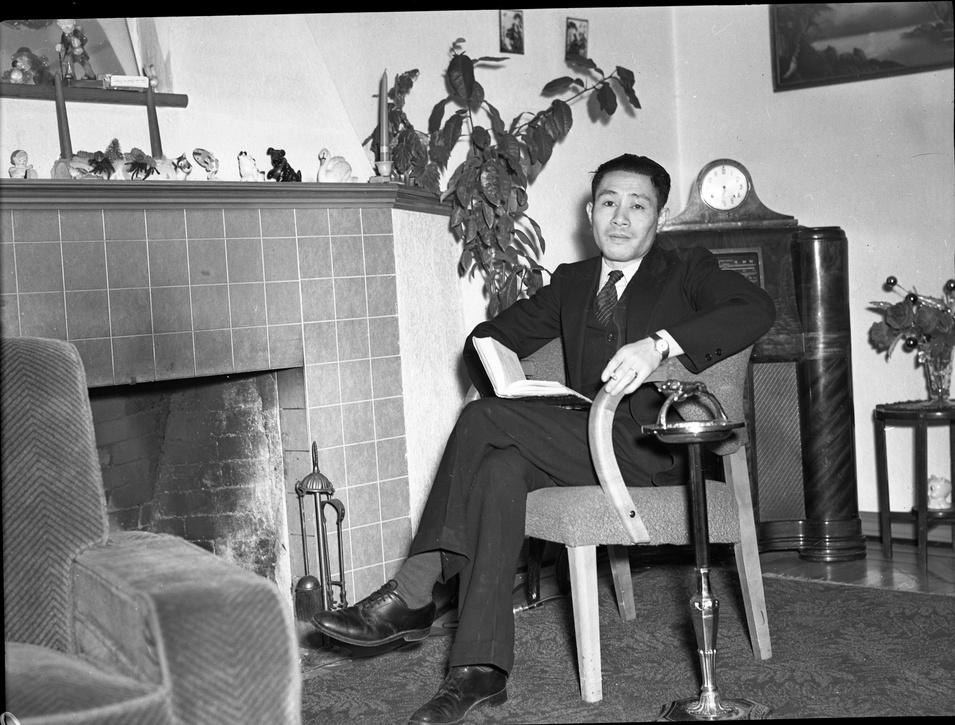
2 minute read
Asian Heritage Month 2023 The Sing Family
by Carolyn Smith, Visitor Services Assistant
The Sing Family’s introduction to the qathet Region started in the district's earliest days through the travels of Powell River’s pioneer businesseperson, Sam Sing. Moving from Vancouver, Sam Sing arrived in Powell River in 1908 and started serving the community in 1910 with the development of the Sing Lee Building, also referred to as “China Block” Erected in 1909, this building held a restaurant, a boarding house, a general store, and multiple other businesses. During the initial construction of the Powell River Company mill, the Sing Lee Building hosted several hundred men who arrived in Powell River for work. Mr. Sing was the first independent merchant to set up in the District of Powell River Despite discrimination being present across the country and within the district, Sam Sing had become a prominent member within the community and between the 1930s and 1970s, the Sing Brothers (Mr. Sing Senior’s remaining sons) would continue in the role of their father as successful businesspersons.
Advertisement
In 1923, Sing's townsite location was bought out by the Powell River Company and he moved his company to the area now known as the Shingle Mill, which was located on the east bank of Powell Lake. Sing restarted his business with the development of a new twostory building which hosted a store and restaurant on the ground floor and twenty furnished rooms on the second floor. Additionally, upon movement to the Shingle Mill location the Sing Lee Steam Laundry operation relocated and was now given power, water, and light from the shingle mill operating on the property. (continued)

By 1936, Sam Sing and the Sing Lee Company developed a modernized two-story building in the south Westview area, creating the second general store under the Company’s name. The new location would be referred to for decades to come as the “Fairway Food Market”. During the 1930s the Sing Lee company was known for producing quality produce with the slogan “Where quality goes hand in hand with economy "
In the year 1937, Sam Sing, the well-known and appreciated community member passed away. After moving from China at the age of 17, Sing had spent the remaining 53 years of his life in Canada. Over 500 citizens paid their respects at his funeral. The Sing Brothers would remain prominent within the community and both Paul and Henry taking over the management of the Sing Lee Company.

The Sing Brothers
In 1918, the remaining of Sam Sing’s children moved from Vancouver to Powell River. His son’s (in chronological order) Henry, Tommy (Thomas), George, Peter and Paul all became prominent members of the Powell River district and within the independent business community. After the passing of Sam Sing Senior, the Sing Brothers continued to develop the Sing Lee Company. The eldest son, Henry Sing taking over as primary manager. In 1942, Henry Sing bought out the Egan’s grocery store in Westview expanding the company to the area of northern residents and bringing the newly named Penny Profit to full operation in
1944. By the late 1940s the Sing Lee Company had three independent stores in the district; Sing Lee Co (Townsite), Fairway Food Market (South Westview), and the Penny Profit Foods (North Westview).
In the 1950s Henry Sing, of the Sing Lee Company passed away suddenly on June 9th at the age of 49. The management of the company was left to Paul Sing who continued to operate the Fairway Food Market and Penny Profit into the 1970s.
Tommy Sing furthered the family’s reputation as businesspersons within the community under his ownership of the Westview Body Shop starting in 1949. Tommy Sing was a prominent member of the community participating in the Rod and Gun Club and the Westview Bowling League. Some referred to him as “Big Trout Tommy” for his continual success in the Rod and Gun Club's annual big trout competition. After Tommy passed away on October 12th of 1970, the Westview Bowling League formed the “Tommy Sing Memorial Trophy” in his honor.









